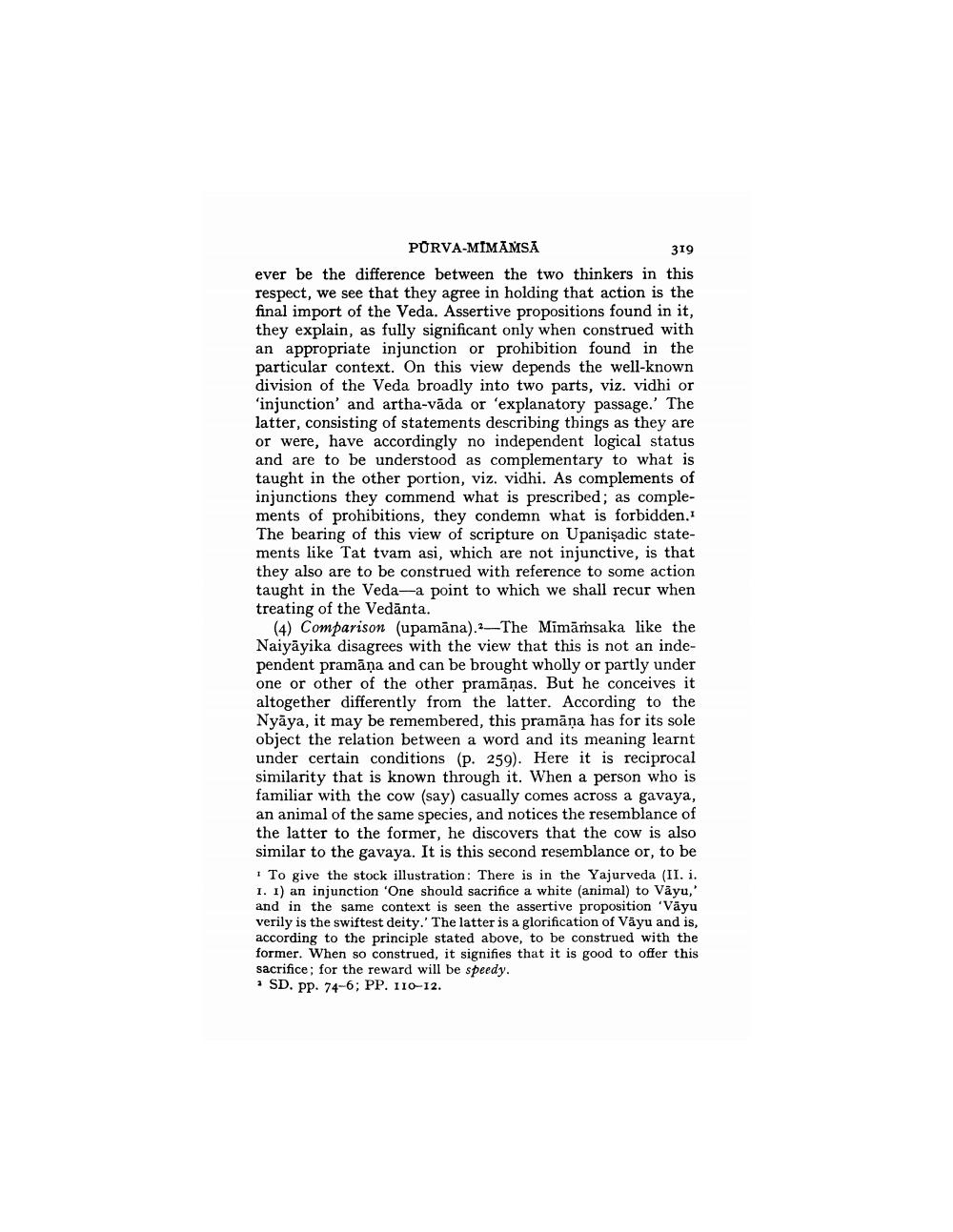________________
PORVA-MIMANSA
319 ever be the difference between the two thinkers in this respect, we see that they agree in holding that action is the final import of the Veda. Assertive propositions found in it, they explain, as fully significant only when construed with an appropriate injunction or prohibition found in the particular context. On this view depends the well-known division of the Veda broadly into two parts, viz. vidhi or 'injunction' and artha-vāda or 'explanatory passage. The latter, consisting of statements describing things as they are or were, have accordingly no independent logical status and are to be understood as complementary to what is taught in the other portion, viz. vidhi. As complements of injunctions they commend what is prescribed; as complements of prohibitions, they condemn what is forbidden.' The bearing of this view of scripture on Upanişadic statements like Tat tvam asi, which are not injunctive, is that they also are to be construed with reference to some action taught in the Veda-a point to which we shall recur when treating of the Vedānta.
(4) Comparison (upamāna).2-The Mimāṁsaka like the Naiyāyika disagrees with the view that this is not an independent pramāna and can be brought wholly or partly under one or other of the other pramāņas. But he conceives it altogether differently from the latter. According to the Nyāya, it may be remembered, this pramāņa has for its sole object the relation between a word and its meaning learnt under certain conditions (p. 259). Here it is reciprocal similarity that is known through it. When a person who is familiar with the cow (say) casually comes across a gavaya, an animal of the same species, and notices the resemblance of the latter to the former, he discovers that the cow is also similar to the gavaya. It is this second resemblance or, to be
To give the stock illustration: There is in the Yajurveda (II. i. I. I) an injunction 'One should sacrifice a white (animal) to Väyu, and in the same context is seen the assertive proposition 'Väyu verily is the swiftest deity.' The latter is a glorification of Väyu and is, according to the principle stated above, to be construed with the former. When so construed, it signifies that it is good to offer this sacrifice; for the reward will be speedy. · SD. pp. 74-6; PP. 110-12.




